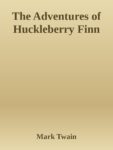Marlon James, Black Leopard, Red Wolf, Riverhead Books, 2019
 Marlon James has weaved a weird, outlandish epic. Black Leopard, Red Wolf is as strange as John Crow’s Devil, his first book, and as raw and twisted as his third, A Brief History Of Seven Killings. The man is a genius.
Marlon James has weaved a weird, outlandish epic. Black Leopard, Red Wolf is as strange as John Crow’s Devil, his first book, and as raw and twisted as his third, A Brief History Of Seven Killings. The man is a genius.
If made into a movie, as intended, Black Leopard, Red Wolf may elicit loud protests from Africans, who may reject its explicit sexuality and other depictions. Wakanda this is not.
Murder, mayhem, war, intrigue, magic, witchcraft, otherworldly. All these and more. If one has the stomach, it is a super read. If not, one may gag and retch through its pages.
Cormac McCarthy, The Road, Knopf Doubleday Publishing Group, 2006
 Dystopia is now the rage — books, movies, TV shows. Westerners, Americans especially, can’t get enough of imagining chaos, devastation, disaster and destruction. Dystopian imagination runs wild.
Dystopia is now the rage — books, movies, TV shows. Westerners, Americans especially, can’t get enough of imagining chaos, devastation, disaster and destruction. Dystopian imagination runs wild.
Dystopian literature is sometimes rooted in cataclysmic experiences. The pain of Jewish exile in Babylon gave birth to the biblical books of Daniel and Zechariah. Roman persecution of Christians led to the New Testament book of Revelation.
Though depicting end time apocalyptic events shrouded in death, destruction and widespread devastation, the biblical books are, at bottom, messages of hope to the faithful. Despite their experiences, they will be vindicated. Redemption will come.
Modern dystopian literature is often devoid of hope. To the extent there is, it focuses on survival instincts and strategies. The Pulitzer Prize winning book, The Road, by Cormac McCarthy, falls into the category of survival at the barest minimum in a world forever changed by devastation. It shows how the bond between the protagonists, a father and his young son, overcomes the odds amid turmoil, uncertainty and danger. It is the bond that binds and keeps them together.
In a dystopian world, if such were to come to pass, The Road may serve as partial survival guide.
Gabriel Garcia Marquez, Love in the Time of Cholera, Vintage; Reprint edition, 2007
 When things fall apart, it is love that sustains. When the world goes mad, it is love that keeps one sane. When love is forbidden, it resists, and its flames burn ever brighter.
When things fall apart, it is love that sustains. When the world goes mad, it is love that keeps one sane. When love is forbidden, it resists, and its flames burn ever brighter.
In times of blight, hardships and difficulty, one’s humanity is tested. One’s resolve passes through the flames.
Cholera is/was a devastating disease that kills and wastes. It wiped out whole communities, whole peoples. Nobel Laureate Gabriel Garcia Marquez’s story, Love in the Time of Cholera, is timeless. It speaks to humanity’s resolve to express and maintain love in the face of opposition and rejection and social chaos, represented by a cholera pestilence.
Love in the Time of Cholera speaks to our time when other pestilences knock at the door.
Mark Twain, The Adventures of Huckleberry Finn, 1884
The Adventures of Huckleberry Finn is steeped in racist assumptions. Brilliantly written, it is  nevertheless a difficult read for blacks, and perhaps uncomfortable for some whites.
nevertheless a difficult read for blacks, and perhaps uncomfortable for some whites.
Huckleberry Finn confirms one thing. Racism comes easily, almost naturally. It shatters all illusions that racism is marginal. Racism is deeply ingrained in the human psyche. The real difficulty is to avoid being racist.
And this is not peculiar to white folks. They are just better at being racists than the rest of us. Whites perfected the art of racism. While for most others it is emotive, whites developed elaborate theories about race and built up vast power structures based on those theories. Structures that exploit and oppress.
But we are no less racist than whites are, at least emotionally. In Guyana and Trinidad, where the population between blacks and Indians is almost equal, both groups are racist against each other. I once witnessed an interview of a leading member of the Rastafarian community in Jamaica (an attorney at law) declaring, without apology and without batting an eyelid, that he is a black supremacist.
Mark Twain’s Huck Finn reminds us that we should not be surprised at racist assumptions, beliefs and actions. The most one can hope for is to punish bad behavior, especially the type that results in the marginalization and oppression of others. Creating and enforcing laws that dismantle and prevent institutional racism and help curb our worst racist instincts and impulses.
Robyn Cadwallader, The Anchoress, Sarah Crichton Books, 2015
Some persons go to extremes to practice their faith. The Anchoress, set in medieval Britain,  recounts what life was like for many young women and girls. Some end up in convents, oftentimes for reasons having little to do with Christian piety.
recounts what life was like for many young women and girls. Some end up in convents, oftentimes for reasons having little to do with Christian piety.
In the novel, Sarah lives in complete seclusion as a Carmelite nun, cutoff from nearly all human contact. A fight to keep the outside world at bay, confined in a small cell. Why she did so is gradually and skillfully revealed as the story progresses.
The Anchoress is a psychological study on the difficulty to cut oneself off from others and suppress one’s cherished desires and memories. Even for supposedly noble and laudable reasons.
Paul Harding, Tinkers, Bellevue Literary Press, 2009
Americans and other westerners try to make death anything other than what it is. A reason  why euphemisms are common — deceased, expired, passed away. For the more religious: “passed on to glory” or “gone to eternal rest.”
why euphemisms are common — deceased, expired, passed away. For the more religious: “passed on to glory” or “gone to eternal rest.”
When death comes, the experience is sanitized as much as possible. At least for witnesses, family and friends in particular. At times however, it is difficult to distance oneself from the reality of death. The increasing incidence of at-home hospice care makes death a more immediate experience.
In his debut novel, Tinkers, Paul Harding relates this immediacy of death of an elderly man under hospice care. Harding captures a growing trend in the United States. Though bewildered by death and dying, a growing number of Americans have had to confront the mortality of their perishing loved ones as well as their own mortality.
Tinkers provides much room for reflection for those caring for aged loved ones or who are contemplating hospice care for their relatives.